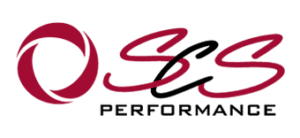Decoding Business Sale Values: A Strategic Approach
Increasingly with the transition of the Baby Boomers into retirement, more and more business owners are considering the sale of their business. This is a very important event, as it allows them to unlock the investment which they have built up in their business over time and assists with funding their retirement. The key question is generally – “how much is it worth?”
We have appraised many businesses as part of our business brokering – so we know that there are many different “value” numbers in use in the market. They include;
- The wish value – the value which every business owner wishes their business is worth, but its seldom anchored by any objective rationale
- The owed value – the value the business owner considers that the business owes them for many years of blood, sweat and tears, which once again, is very subjective and generally without a hard basis
- The need value – this frequently aligns with a debt and how much is required to clear it – but is seldom reflective of the actual worth of the business
- The opinion value – the value which the friend, relative or well-meaning professional may cast after a 30 second discussion around the business
- The appraised value – a structured and considered opinion of the business, inclusive of its operations and its financial results
- The buyers value – the amount which with good marketing, preparation and negotiation, a buyer will pay
- The sworn value – the very structured and highly analysed value of the business and its market by an accredited valuer
This list is of course a bit tongue in cheek, but it does show that there are many different views on the value a business.
Our appraisals reviewed the financials, tested and challenge financial variances, interviewed the owners and completed a site visitation. Sworn or formal valuations are clearly the best option due to their comprehensive nature, but most owners balk at their cost – as they normally start well into the $000’s. The opinion value is perhaps the most expensive, as whilst it is often quick and cheap to get, the accuracy supports the theory of you get what you pay for.
In appraising a business to provide guidance for its sale as a going concern, we are reviewing three principal elements;
- The financial position to identify a normalised profit level
- The characteristics of the business, including:-
- Business Structure
- Management Structure
- Market Environment / Competitive Position
- Financial Position
- Staff / Personnel
- Technology and Information Systems
- Elements within the business which could hinder its marketing and sale
The sale value for any business can be highly variable and is largely dependent on a willing seller and an interested buyer. You could also say “a business is worth precisely what someone is willing (and able) to pay for it – and what you’d be prepared to sell it for”. The more accurately we can define the value and support it with evidence, the more likely you will be able to sell it for that value.
Looking at these three elements a bit more;
Financial data
There are many different methodologies available for calculating a business value, however for a going concern business, we will normally use the Future Maintainable Earning method which uses normalised historical profit multiplied by a Beta value or multiplier. This reflects the expected sustainability of those profits into the future – as this is what the purchaser is buying.
We like to review three years’ worth of financial data to assess a normalised profit number, but we naturally apply a heavier weighting to the most recent data. A buyer is going to be most interested in the “current” performance of the business, but will pay more for “stable” performance over time. The normalised profit is after the adjustment of one-off, non trading and the vendors own company related expenses, and reflects the income which a purchaser could reasonably expect to receive by purchasing the business.
Business Characteristics
Selling a business is about more than just the number at the bottom of the profit and loss report. A buyer is looking to purchase a money making machine which will deliver them a return well after the existing owner has left. This means that things such as systems, processes, staff, product range, brand, marketing, sites, leases (just to name a few) – all have a bearing on the sale value.
We use a 14-point assessment to identify where the value is within the business. Those business owners who have “everything in their head”, will have a lower business value as we can’t easily sell their knowledge. From this assessment, we form a view on the Beta value or multiplier for the Future Maintainable Earnings of the business. Stock is considered at its valuation level, with equipment value considered specifically in each case.
Barriers
Purchasers can be easily distracted, so our guidance is to remove any identified distractions. This may include simple things such as; cleaning up the business and removing office clutter, establishing the sort of lease terms which could be available on the business site, or having the current year’s financial data readily available. Any elements which can make a purchaser wait, or stall negotiations, increase the risk that the purchaser will find something else to buy.
Selling a business is not without cost – in time, energy and money, so if you are considering selling your business and wonder about its value, then have your business appraised or formerly valued to fully understand your options. Above all else, resist the urge to simply take the quick opinion from anyone about the worth of your business – as it’s simply not that easy. Marketing or selling your business on a whim, with a poorly conceived value could be a very expensive mistake.












